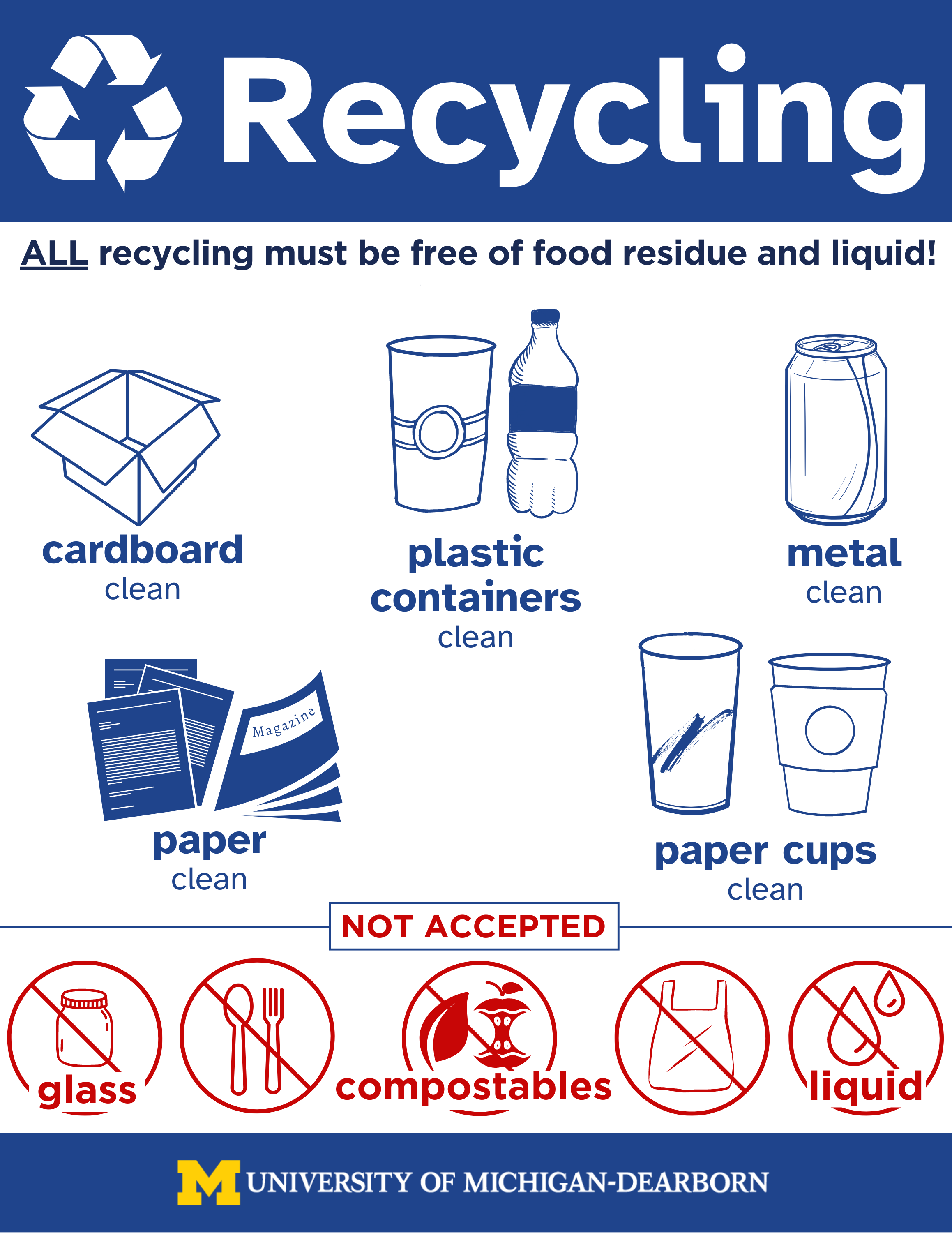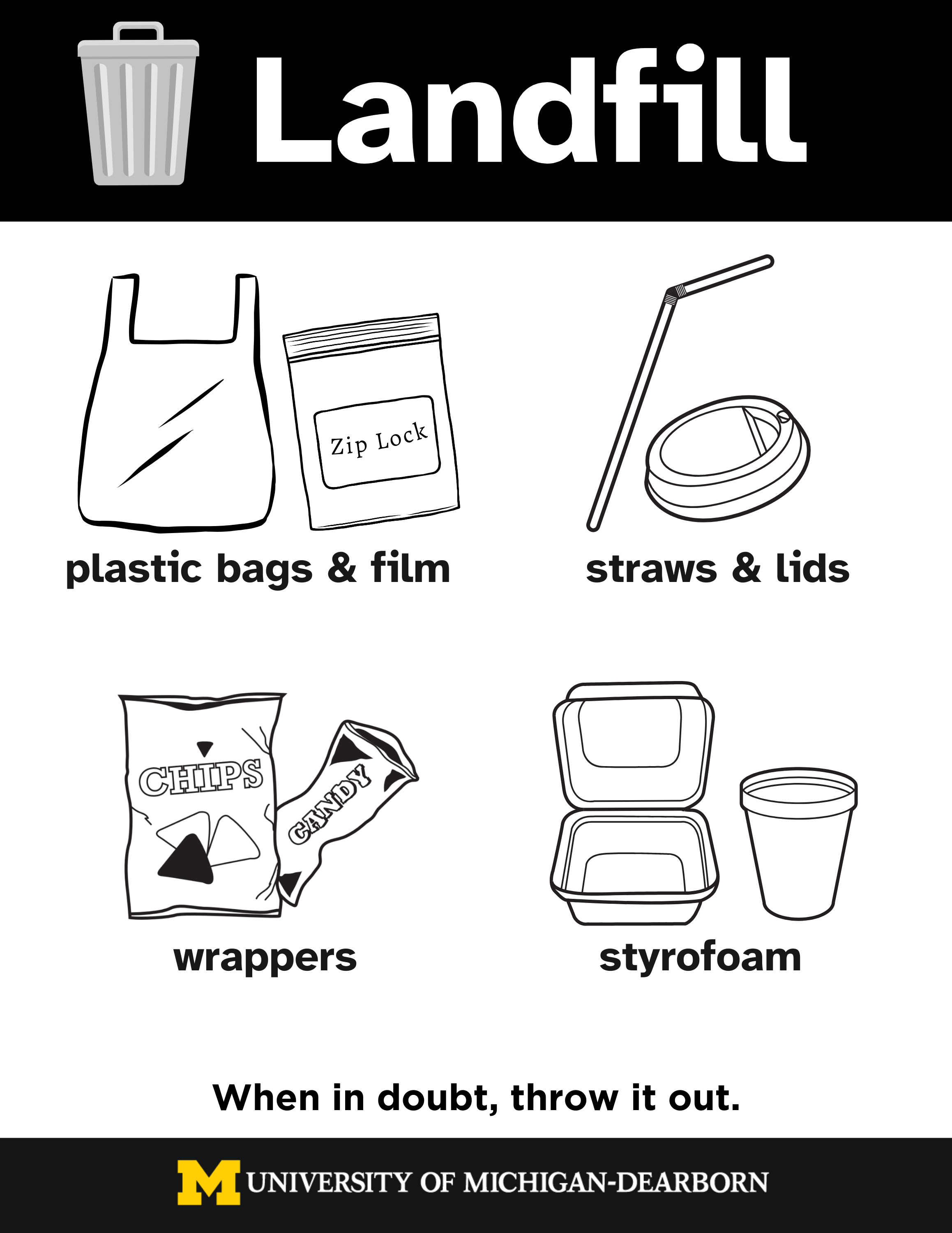Recycling, Compost, Landfill - What Goes Where?
This page is designed to make recycling at UM-Dearborn simple. Please remember, these guidelines are specific to UM-Dearborn's Recycling Program. Every recycling program has slightly different rules depending on where you are (we know... it could be more convenient). If you're curious about the recycling guidelines where you live, visit the Michigan Recycling Directory and type your county or city in the search box.
While we don't have composting options across our campus buildings yet, our pilot Zero Waste Events program is a stepping stone to get there. Visit the Zero Waste Events page to learn more about how to host an event that is better for people and the planet.
UM-Dearborn Recycling Guidelines

You can download the recycling guidelines through the following link: Recycling Guidelines Download.
Paper & Cardboard
- Flattened Cardboard
- Office Paper
- Glossy Paper (like magazines)
- Newspaper
- Softcover Books
- Junk Mail (it's ok to leave small plastic window)
- Clean Pizza Boxes
- Milk, Juice, and Soup Cartons
- Coffee cups
- Waxy paper soda cups
Plastics (must be clean!)
- Plastics numbered 1, 2, 5
- Plastics numbered 4 and 7, EXCLUDING styrofoam/polystyrene products and flimsy plastic/plastic bags
- Plastic Bottles
- Plastic Cups
- CLEAN plastic takeout boxes
Metal
- Aluminum Cans
- Small Steel Lids
- Clean tin foil
UM-Dearborn Landfill Guidelines

You can download the landfill guidelines through the following link: Landfill Guidelines Download.
Some plastic products:
- Plastics #3
- Plastic Bags (you can recycle these at most large grocery stores)
- Flimsy Plastics (these are typically plastics without a recycling triangle label)
- Plastic utensils
- Plastic Binders
- Chip Bags
- Ziplock Bags
- Plastic Wrap
- Styrofoam
Some paper products:
- Tissues
- Paper Towels and Napkins
- Hardcover Books
- Spiral Notebooks
- Shredded Paper
- Candy Wrappers
Miscellaneous items:
- Glass
- Compostable products (we are in the process of developing a composting program!)
- Food Waste
- Items that are soiled, dirty or covered in liquid
